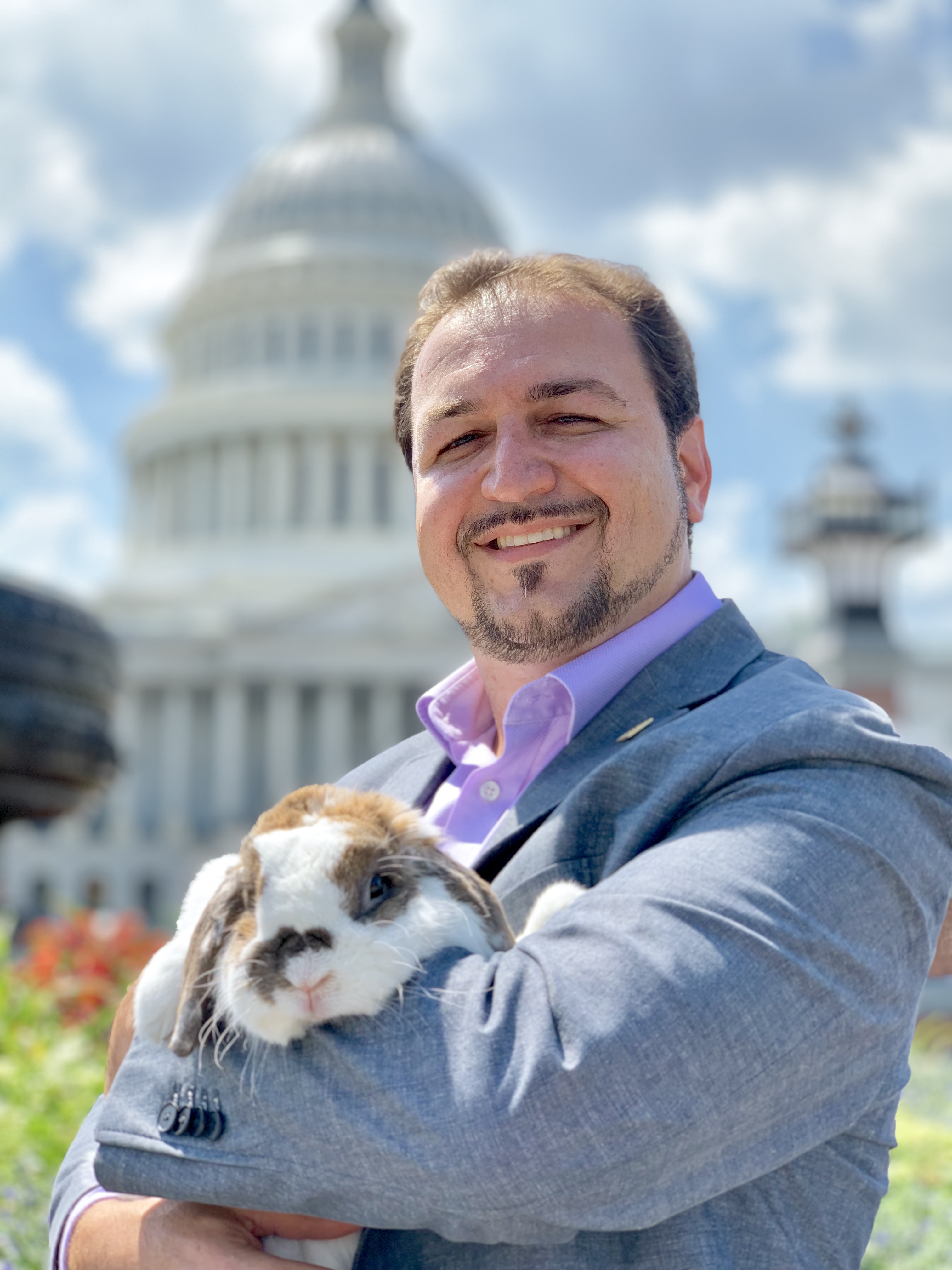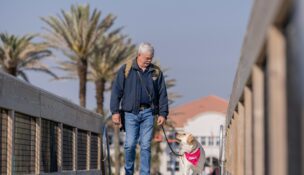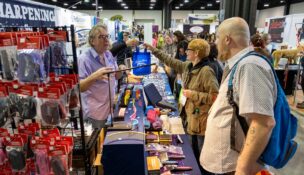Five Q’s with PIJAC President, CEO Mike Bober
Pet Age Staff //September 1, 2019//
Mike Bober has been with the Pet Industry Joint Advisory Council since 2013 and became its president and CEO in 2016.
Q Tell us how members of the pet industry can take part or support the Pet Care Community Fly-In on Capitol Hill on September 18?
A Anyone who is part of the responsible pet care community is encouraged to join us in Washington for the fly-in day on September 18, where we’ll visit the offices of lawmakers to deliver the message that pets have an extraordinary and positive impact on humans’ emotional and physical health. While we at PIJAC represent your voice in Washington throughout the year, elected officials need and want to hear from their constituents, too. These lawmakers are making decisions on issues that could significantly impact your business—including trade tariffs, breeder rules, pet food regulations, environmental policies and more—so this is an ideal opportunity to tell them face-to-face what issues are important to you.
It’s easy: PIJAC schedules the meetings for you, and provides advocacy training and talking points. Participants also get to attend briefings with experts sharing the latest pet-related science and political developments, as well as an evening reception, Pet Night on Capitol Hill. There is no cost to attend the Fly-In or Pet Night, registration links for both are on our website.
Q How has PIJAC changed since you came on board six years ago?
A Like everyone in the pet care community, PIJAC has had to change our approach to sharing the story of how we care for – and about – animals. We’ve had to get better at showing, not just telling, with an emphasis on transparency and pride in what we do. And that has led to new ways of thinking about what it means to be a voice for responsible pet care, which have resulted in efforts like our recent recommendations for antibiotic stewardship and small animal standards of care.
Social media and other new technologies have given us some great opportunities to communicate directly with lawmakers and the public, but they’ve also made it easier for activist groups to spread misinformation and pressure elected officials to pass “sounds good, feels good” legislation that actually harms companion animals and those who care for them. Just having facts on our side isn’t enough – we’ve had to change the way we share those facts to help people understand why they matter.
But the most important changes we’ve gone through in that time have been personal. Peach Reid, our first female Board Chair, has been instrumental in working with us to chart a course that keeps pet care first and foremost in everything we do. And since I came on board, we’ve added some truly impressive people to our team to help us better advocate for the pet care community. We’ve been fortunate to find people like Bob Likins, Savonne Caughey and Courtney Hogan and to convince them to join the fight. With Josh Jones and Jeff Plummer (who have both been with PIJAC longer than I have), their efforts allow us to accomplish far more than our size and limited resources should allow when it comes to government affairs nationwide. And now that we’ve added Gwyn Donohue to lead our communications efforts, you’ll see us doing an even better job of making our case to lawmakers, the public and the broader pet care community.
Q How do PIJAC’s standards of care publications fit into its mission?
A Our standards of care publications reflect the pet care community’s commitment to treat animals responsibly and to help connect prospective pet owners with their ideal companions. We are being challenged to show we care about the animals we bring into people’s lives, and these standards represent best practices developed in consultation with experts to be used by responsible breeders and distributors along with their own protocols.
Our mission to promote animal well-being and responsible pet ownership, foster environmental stewardship, and ensure the availability of healthy pets drives everything we do here at PIJAC—from the development and distribution of animal care standards to partnering with government agencies and industry organizations to educate the public and pet care professionals on proper pet handling, care and choice. Our catalog of resources—including guides geared for retail store owners and employees, groomers and stylists, wholesalers and distributors, hobbyists, and more—can be accessed on our website.
Q What have been some of the big legislative and regulatory issues facing the pet industry this year?
A PIJAC predicted an even busier agenda for the 2019-2020 session, and by the end of June, we had tracked over 970 legislative and regulatory issues impacting animal care, pet owners and pet care professionals—an eight percent increase over the same time frame in 2017-2018.
We’ve engaged on a variety of bills and special interest group actions that seek to limit the public’s access to responsibly raised companion animals. These include legislation to restrict the types of dog breeds or exotic species people can have as pets and the ability of pet stores to offer certain kinds of animals, as well as a public campaign discouraging Betta fish ownership. We are also working to protect the health and well-being of animals by promoting legislation that creates reporting mechanisms to identify animal abusers and establishes or increases penalties for abuse. Join PIJAC to stay informed and add your support as we tackle issues that impact pets and pet businesses.
Q What has owning pets meant to you and your family?
A I always love hearing about the latest research on the health benefits of the human-animal bond from HABRI, and I find myself nodding and smiling every time I watch “Pet Effect” ads because I’ve experienced these things for myself throughout my life. I remember when my parents brought home a Cairn terrier from a breeder who knew that he wasn’t quite destined for glory as a show dog. He was a fun, fierce friend and companion I could always count on while growing up.
After we were married and before we had our girls, my wife and I found a Cocker spaniel at the Washington Humane Society (now the Humane Rescue Alliance). He kept me company as I worked from home in a previous position, and he probably deserves a fair share of the credit for my successes there. My memories of his enthusiastic romps through the snow on Capitol Hill and along the wooded trails at Great Falls National Park in Virginia still make me smile. We were lucky enough to enjoy eleven wonderful years with him.
These days, we share our home with Mr. Buttons, an older rabbit brought home from the Animal Welfare League of Alexandria, whose care provides daily reminders about responsibility and commitment to our daughters and whose soft fur provides instant stress relief to all of us.



















